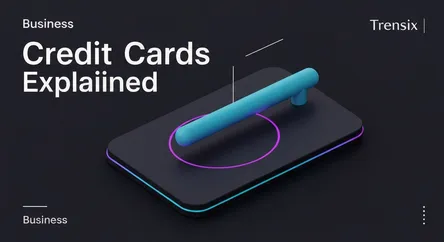Business
Credit Cards Explained

Discover what a credit card is, why it's a key financial tool, and how responsible use can build your credit and unlock rewards.
What is it?
A credit card is a payment tool issued by a financial institution that lets you borrow money to make purchases. Unlike a debit card, which draws from your bank account, a credit card uses a line of credit that you must repay later. Each card has a credit limit—the maximum amount you can borrow. Cardholders receive a monthly bill and can pay the full balance to avoid interest or make a minimum payment, carrying the remaining balance over with interest charges applied, which can be quite high.
Why is it trending?
Credit cards are essential in the modern economy due to the global shift towards cashless transactions and the boom in e-commerce. They offer convenience and security for online shopping, along with robust fraud protection. Furthermore, competitive rewards programs offering cash back, travel points, and other perks make them highly attractive. They are also a primary tool for building a credit history, which is essential for securing larger loans, such as mortgages or auto loans, making them a cornerstone of personal finance management.
How does it affect people?
A credit card can be a powerful asset or a significant liability. Used responsibly, it provides financial flexibility, emergency funds, and valuable rewards. On-time payments build a positive credit score, unlocking better interest rates on future loans. However, mismanagement can quickly lead to a cycle of high-interest debt that is difficult to escape. High balances and missed payments damage a person's credit score, making it harder and more expensive to borrow money for major life purchases like a home or car, impacting long-term financial health.